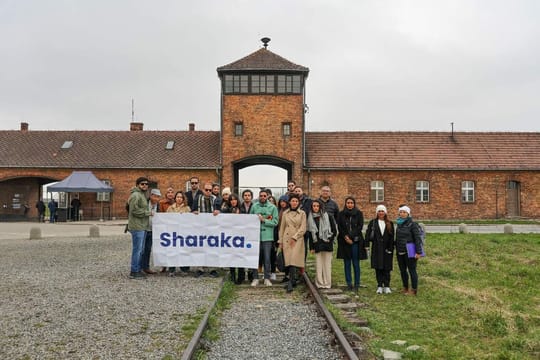Civil Rights in the Light of Covid-19

In the midst of the coronavirus crisis, the High Atlas Foundation had the opportunity to participate in a webinar about civil rights in the light of COVID-19. The webinar was organized by Innovation for Change, a global network of people and organizations who work together to protect civic space and overcome restrictions to our basic freedoms of assembly, association, and speech.
Forty members from various Arab countries such as Kuwait, Jordan, Iraq, Tunisia, Algeria, Morocco, Oman, Lebanon, Palestine, Egypt, Mauritania and Bahrain attended the virtual event.
The webinar opened with attendees introducing themselves as well as the organizations represented. This was followed by an overview about the Innovation for Change initiative. Then, the facilitator of the webinar defined civil rights as those related to the human person, his dignity, existence, development and growth.
Civil rights ensure peoples’ physical and mental integrity, life, and safety; protection from discrimination on grounds such as race, gender, sexual orientation, national origin, color, age, political affiliation, ethnicity, religion, and disability. Every human being should have these rights wherever s/he is.
As for political rights, they include procedural fairness in law, such as the rights of the accused. This includes:
- the right to a fair trial,
- due process,
- the right to seek redress or a legal remedy,
- rights of participation in civil society and politics such as freedom of association,
- the right to assemble,
- the right to petition,
- the right of self-defense, and
- the right to vote.
The conversation focused on three articles from the International Covenant on Civil and Political Rights.
These articles are as follows.
Article 19:
- Everyone shall have the right to hold opinions without interference.
- Everyone shall have the right to freedom of expression; this right shall include freedom to seek, receive and impart information and ideas of all kinds, regardless of frontiers, orally, either in writing or in print, in the form of art, or through any other media of his choice.
- Respect for the rights or reputations of others. The protection of national security or of public order or of public health or morals.
Article 21:
The right of peaceful assembly shall be recognized. No restrictions may be placed on the exercise of this right other than those imposed in conformity with the law and which are necessary in a democratic society in the interests of national security or public safety, public order, the protection of public health or morals or the protection of the rights and freedoms of others.
Article 22:
- Everyone shall have the right to freedom of association with others, including the right to form and join trade unions for the protection of his interests.
- No restrictions may be placed on the exercise of this right other than those which are prescribed by law and which are necessary in a democratic society in the interests of national security or public safety, public order, the protection of public health or morals or the protection of the rights and freedoms of others. This article shall not prevent the imposition of lawful restrictions on members of the armed forces and of the police in their exercise of this right.
The webinar also tackled another important question, which is: Are all Arabs aware of their civil rights?
To answer this question there were two opinions.
The first one emphasized that citizens are aware of their civil rights given that indicators signify heightened awareness to some extent after the Arab Spring.
The second opinion is that, until now, generally speaking, people have no awareness of their civil rights and, specifically, policies related to emergencies. Moreover, they see that in times of crisis, the government makes major decisions without engaging civil society,
Several organizations shared some best practices and about some of the activities that have been initiated by civil society during the pandemic, such as raising awareness about staying home during this difficult time, delivery of medicine, and sharing with constituents accurate and reliable information about the pandemic and associated measures for prevention and containment. Morocco was a great example in this regard, as in light of the COVID-19 pandemic, it has been one of the first countries to implement a strict lockdown, including a prohibition on all domestic and international flights as well as ground travel between cities.
Responding to these extraordinary challenges, the High Atlas Foundation intends to start organizing virtual capacity-building workshops as an alternative solution during this uncertain time in the framework of USAID’s Farmer-to-Farmer program (F2F). Workshops will cover topics such as food safety, business plan development, financial management, and record keeping.